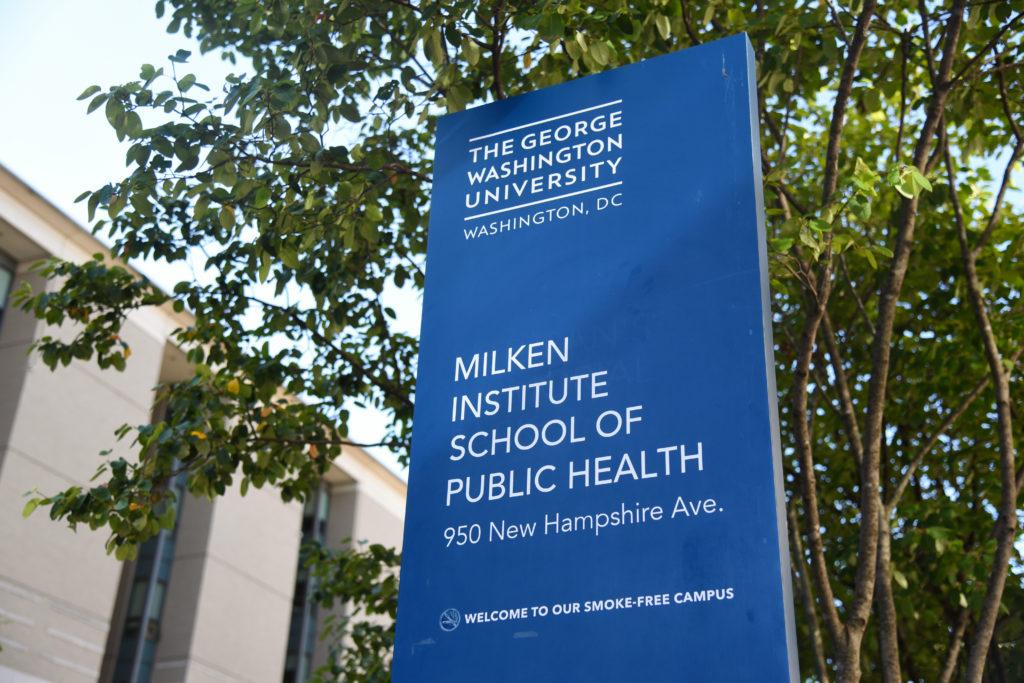The Milken Institute School of Public Health has begun accepting applications for two new doctoral programs in global public health sciences and health and biomedical data science.
Faculty in the public health school said the programs will educate the next generation of leaders in these fields and prepare them for jobs in government agencies or in academia. They said the programs offer an interdisciplinary approach to global public health sciences and health and biomedical data science, which will help attract candidates.
The program in health and biomedical data science will be the first doctoral program offered by the Department of Biostatistics and Bioinformatics, which formed in July 2019. The global public health program will be the second doctoral program that the Department of Global Health offers.
Global public health sciences
James Tielsch, the chair of the global health department and a professor in the global public health program, said there is a market for this type of doctoral program as no other school in the District has a similar program.
“We have consistently had people asking us about this over the past couple years, so we thought it was the right time to put it all together,” Tielsch said.
Tielsch said the global public health program includes three “specialization areas” for students – population health science, global infectious disease and health systems.
The program includes courses like Advanced Epidemiologic Methods and Global Vaccinology, and students must complete at least 48 credits to receive the degree.
“People who are interested in those specific areas will be assigned the appropriate kind of faculty mentors and will have a custom curriculum designed specially for them,” Tielsch said.
Tielsch said he expects applicants to the program to be well trained in quantitative science as well as other areas in the health field, although he said applicants can come from a “fairly broad” range of public health interests. He said he estimates about 30 to 40 prospective students have applied to the program so far.
“This program just reflects the growth of our department and school of public health in general,” Tielsch said.
Adam Richards, an associate professor of global health, said global public health has received “tremendous growth and interest” for more than a decade, and the COVID-19 pandemic may further increase that pattern. He said the pandemic will further emphasize how the “health of people anywhere impacts the health of people everywhere.”
Officials saw a 20 percent increase in the number of students interested in studying public health this academic year, which experts said is likely due to the growing national interest in epidemiology and public health during the pandemic.
“Global health applies all the same tools as public health but does so in a way that emphasizes that interconnectivity and that collective action that is necessary to solve problems that are uniquely global in scope,” Richards said.
He said he hopes the program can recruit students outside the United States to give them tools to help their own countries with public health issues.
“I would hope that the program remains available and accessible to folks from other countries and it can serve as a tool to improve the capacity to exponentially increase the local capacity of previously lower-resourced settings,” Richards said.
Biomedical data science
Milken spokesperson Stacey DiLorenzo said the doctoral program in health and biomedical data science will provide “rigorous” training in the fundamentals of health and biomedical science for doctoral students. She said they will have opportunities at research centers directed by Milken faculty members like the Computational Biology Institute and the Biostatistics Center.
She said the biostatistics and bioinformatics department consists of faculty members who have “considerable sponsored research funding,” which allows them to provide their students with funding and research opportunities.
The program includes courses on topics like programming languages and within the two concentrations of applied biostatistics or applied bioinformatics, for a total of 72 credits.
“Strong academic programs from this seminal department will play a key role in the opportunities at GWSPH and the continued climb in national prominence,” she said in an email.
DiLorenzo said the country has seen a nationwide demand for more of these types of academic programs, adding that the National Institutes of Health has been the “largest public funder” of biomedical research, providing about $32 billion per year.
She added that the program is “novel” in that it combines the subjects of biostatistics, bioinformatics, data science, computing and public health.
“The mission of the Ph.D. in health and biomedical data science is to train the next generation of leaders in the quantitative aspects of public health and medicine,” she said.
DiLorenzo said the program is intended for students who have a previous background in data science, including those enrolled in GW’s undergraduate data science program or graduate programs in biostatistics and medicine. She said graduates of the program will be prepared for careers in academia, government agencies like the NIH and Food and Drug Administration and industries like pharmaceuticals and biotechnology companies.
She said officials have yet to “properly advertise” the program, but they are “extremely pleased” with the interest they have received in the program so far, with 20 completed applications and “40 more or so” currently in progress.
“This is a testament to the reputation of the faculty in the Department of Biostatistics and Bioinformatics and the Milken Institute School of Public Health,” she said.








